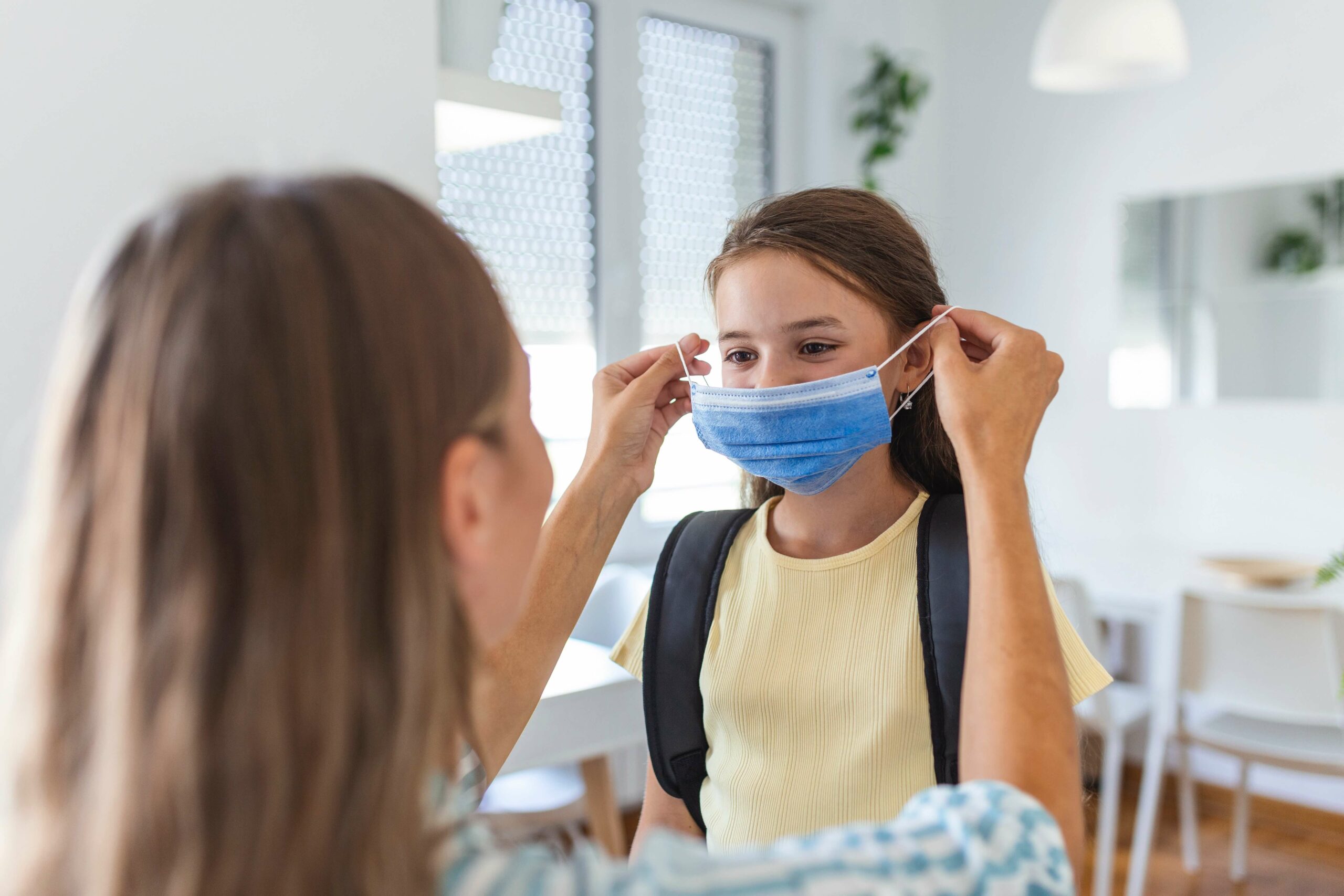In comparison to the common cold, the flu illness poses a greater threat to flu. Every year, millions of children catch seasonal flu, and thousands of them end up being hospitalised. Sadly, some children even lose their lives due to the flu. Children below the age of 5 are particularly vulnerable to the flu, and they often require medical attention.
What is The Flu?
Influenza commonly known as the flu, is a contagious respiratory illness caused by the influenza virus. It spreads quickly through coughing and sneezing and can result in mild to severe symptoms. In some cases, the flu can lead to serious complications and death.
Are Young Children at Risk for Contracting The Flu?
Children are at high risk for getting the flu. Influenza can affect people of all ages including children. Children under 5 years of age are considered a high-risk group for complications from flu.
Children can spread the flu due to close contact at school and daycare, with adults, poor hygiene habits, and limited immunity.
Children Below 6 Months of Age
Children below 6 months of age cannot receive a flu vaccine. The best way to protect them is for their parents to get vaccinated during pregnancy and for those around them to get vaccinated as well. A flu shot given during pregnancy not only protects the pregnant parent from the flu but also helps protect the newborn baby from flu infection for several months after birth- until they are old enough to be vaccinated.
Children Aged 6 Months to 5 Years
Children in this age group are at higher risk of developing severe flu illness, even if they are otherwise healthy. From the 2010-2011 season to the 2019-2020 season, CDC estimated that flu-related hospitalisations among children younger than 5 ranged from 6,000 to 27,000. Therefore, all children aged 6 months and older should be vaccinated against the flu each year.
Vaccinating young children, their families, and other caregivers can also help protect them from getting sick.
Children Who Are Most Vulnerable to The Flu
Children aged 6 months and older with chronic health problems such as asthma, COPD, cystic fibrosis, cerebral palsy, epilepsy, heart disease, sickle cell disease, diabetes, kidney or liver disorders, weakened immune system, or who are taking aspirin or salicylate-containing medicines should receive the flu vaccine each year.
Extreme obesity, a body mass index (BMI) at or above the 95th percentile for age and sex, may also be a risk factor for children.
Why Should My Child Get a Flu Vaccine?
The most effective way to prevent the flu is by getting an annual flu vaccine. Benefits of getting a flu vaccine include reducing the risk of severe illness and hospitalisation, avoiding missed school or work due to illness, and decreasing the high risk of serious complications, especially in children under 5 years old or those with certain chronic conditions.
Additionally, getting vaccinated helps prevent spreading the flu to family and friends, including babies younger than 6 months who can't receive the vaccine. It is recommended that everyone six months and older should get a seasonal.
It is best to get vaccinated before the flu starts spreading in your community because it takes about two weeks after vaccination for the body to develop antibodies against flu virus infection. For those at higher risk of developing serious flu complications or who are in close contact with people at higher risk, flu vaccination is especially important. This includes children who are at higher risk of developing complications from flu illness and adults who are in close contact with those children.
Can My Child Be Infected With The Flu and COVID-19 at The Same Time?
It is possible to get infected with both the flu and COVID-19 at the same time. This is called a co-infection. Since both viruses are likely to be circulating at the same time, the risk of co-infection is expected to be higher. To protect against severe illness and avoid healthcare visits, it is recommended to get vaccinated against both the flu and COVID-19.
Who is at High Risk of Developing Complications From The Flu?
The following individuals are at a higher risk:
- Individuals who are younger than 2 years or older than 65 years.
- Pregnant women, including those in the post-partum period.
- Individuals who are morbidly obese.
- Individuals who have been infected with Mycobacterium Tuberculosis (TB) or Human Immunodeficiency Virus (HIV).
- Individuals with chronic diseases such as diabetes or asthma.
How Can My Children Protect Themselves From Getting The Flu?
To prevent contracting or spreading the flu, your child should avoid close contact with sick people, stay home when sick, and cover their mouth and nose when coughing or sneezing. By wearing a mask, cleaning their hands regularly and avoiding touching their face they can protect themselves from contracting influenza.


 71–75 Shelton Street, Covent Garden, London, WC2H 9JQ
71–75 Shelton Street, Covent Garden, London, WC2H 9JQ +44 (0) 20 3376 1032
+44 (0) 20 3376 1032



